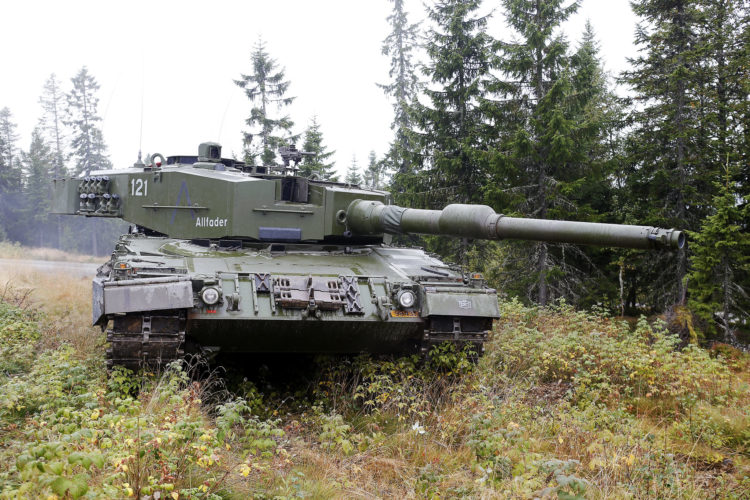“Previous Marker tests – at least those made public – were against small UAVs, and these [unmanned ground vehicles, or UGVs] conducted tests for orienting in a complex space like a forest, but not an actual battlefield where multiple countermeasures are trying to destroy the vehicle. Moreover, Western tanks will be part of combined arms formations with aerial support like drones and UAVs, which are going to hunt for any Russian target, including the likes of Marker ground vehicles. Rogozin’s earlier claims of Marker as a recon UGV were more realistic.”
The earlier Marker tests made public have only been against small UAVs. These UGVs performed tests to determine their ability to orient in a complex environment, such as a forest, but not in a battlefield where multiple countermeasures attempt to destroy the vehicle. Additionally, Western tanks will be part of battle formations with aerial support, such as drones and UAVs, searching for any Russian target, including Marker ground vehicles. Therefore, Rogozin’s assertions of Marker being a reconnaissance UGV were more realistic.
Western sanctions have varied impacts on Russian tech companies like UGV producers, as demonstrated in a recent report from the Silverado Policy Accelerator. These sanctions have tried to impede the import of computer components to Russia; however, the results have been inconsistent.
Evgeny Dudorov, Android’s CEO, reported last month that the sanctions imposed on technology have had a negligible effect on their capability of obtaining necessary component parts, as stated by Bendett.
According to Dudorov, the influx of investments from the Russian Ministry of Industry and Trade will help the native robotics sector come to par with the forerunners in the span of 1.5-2 years and eventually reach the same level as the current market leaders within 10-12 years.
According to Bendett, Dudorov’s evaluation was “optimistic” in light of the Russian high-tech sector’s ongoing reliance on imported components. Indeed, almost 80% of Dudorov’s FEDOR robot was composed of parts outside Russia. This high reliance rate on imported parts is a significant obstacle to achieving the goals set by Dudorov.
To reduce the reliance on imported parts, Bendett highlighted that Russia needs to increase its focus on product diversification and IP protection as well as nurturing local talent through an effective ecosystem of academic programs, research initiatives, and industry incentives. Russia also needs to expand its support of growth-stage and early-stage startups to optimize the potential for innovation in the robotics sector.
Ultimately, with adequate resources, investments, and a supportive environment, Russian firms have the potential to become global leaders within the next decade. This will involve a significant effort from both government and the private sector.
How about you? What do you think about Russia’s vision of this futuristic tank-decimating robot? Real or hoax? Let us know in the comments below!










COMMENTS